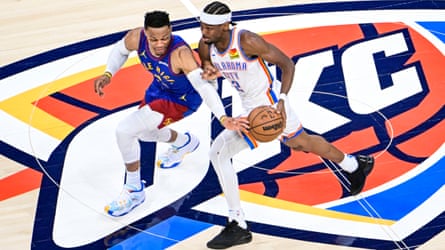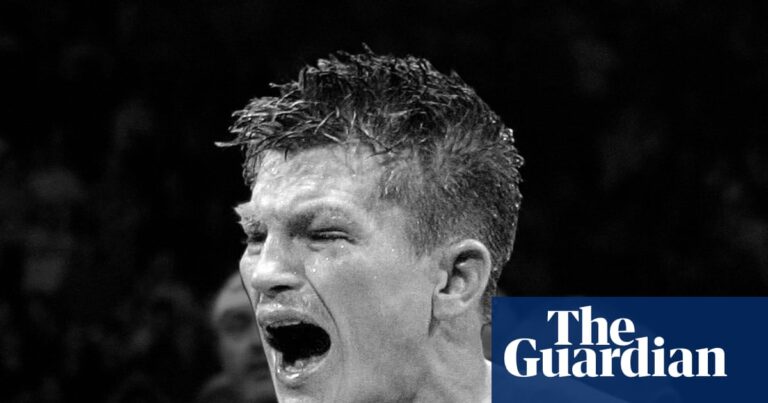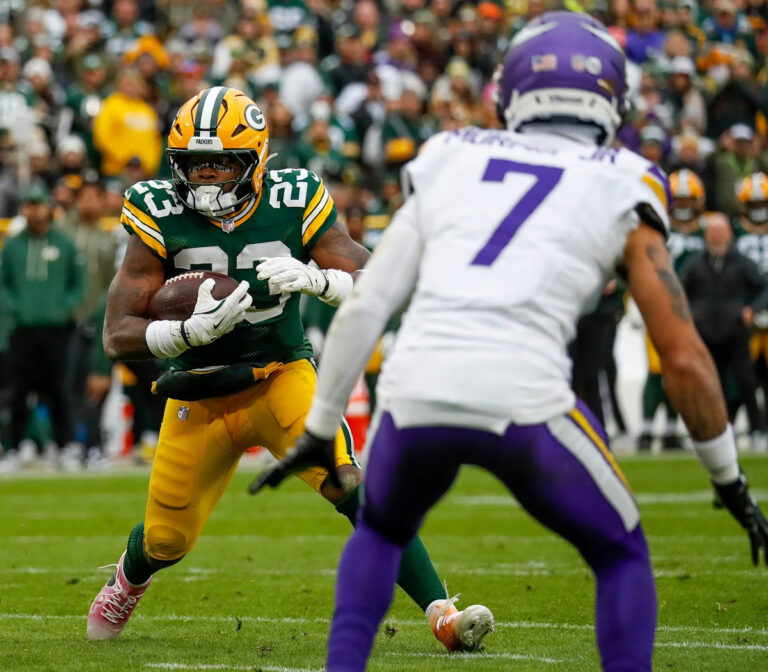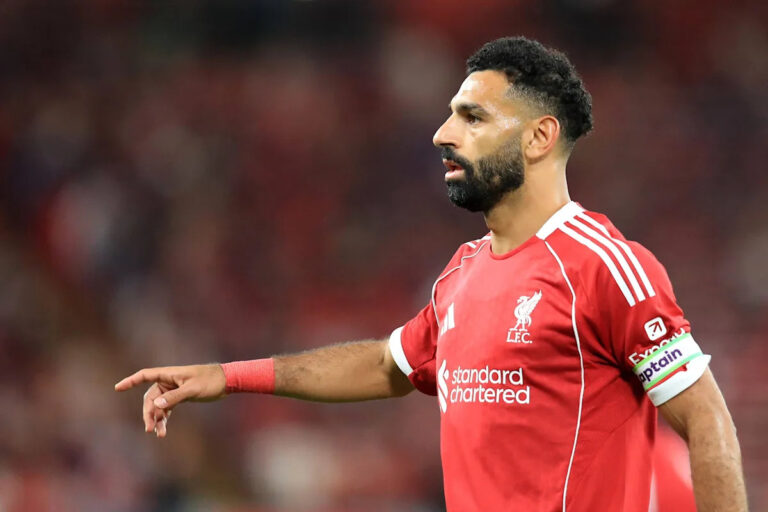
Is it really the end this time? For Russell Westbook, Sunday’s Game 7 decider between the Thunder and the Nuggets was a homecoming in more senses than one: not only was he returning to the city to which he’d given his best years, a court on which he’d embodied more than any other player in the franchise’s brief history the thunder of Oklahoma City’s name, he was also a man in search of a place to call his own – a role, an identity – after years of peripatetic wandering across the NBA in which teams have often seemed unsure how best to exploit the 2017 MVP’s prodigious, if fading, gifts.
After near-misses with Oklahoma City in the 2012, 2014 and 2016 playoffs, the litany of injuries that followed, and the long search for a basketball home in the years since – which have seen him play both an ill-fitting support position in the LeBron James-Anthony Davis Los Angeles Lakers and a starring hand for the cross-town Clippers that did little to hide metastasizing deficiencies in his game – the move to Denver last summer seemed to offer hope for a reset: occupying a clear sixth man role, Westbrook was brought in to supply experience and energy off the bench for those crucial minutes when Nikola Jokić and Jamal Murray needed a rest.
The experience and the energy were all there on Sunday, as they have been throughout the postseason: even at 36, with a right knee that’s seen more cuts than a federal government agency under Elon Musk, Westbrook remains improbably quick, and he still jets through the lane with that curiously upright sense of majesty that makes him seem far taller than his 6ft 4in. But all the other parts of the Westbrook package were on display too: the missed shots, the poor passes and turnovers, the hastiness of thought and action. These playoffs have been brutal for the nine-time All-Star, and Denver’s Game 7 annihilation at the hands of the team that shaped him offered a neat summary of his recent struggles: over a 13-minute first half-stretch in which Westbrook took over as chief on-court orchestrator, the Nuggets endured a 23-point swing against them. From there, the Thunder’s ultimate victory never really seemed in doubt; with Jokić chained to the lash of Alex Caruso and Aaron Gordon visibly hindered, the game was dead as a contest by half-time.

This sense of evidence-proof wonder is key to the Westbrook mythos, the reason he will still be remembered fondly once the technocrats and percentage-players of this generation are forgotten. In a culture awash with nostalgia, Westbrook is maybe the ultimate basketballing fetish object: a richly gifted player whose appeal is rooted not only in his own unrealized promise but in the abiding sense that he belongs to a different era. Westbrook was drafted as the fourth overall pick by the Seattle SuperSonics in 2008 and the team immediately moved to a different city and changed its name – marking him, perhaps, as a man perpetually out of sync with the times. Even the number 0 he took while playing for his first team, the rebranded Oklahoma City Thunder, seemed to appeal to something nonexistent, making him the basketball equivalent of an empty set.
The modern NBA – the game reshaped and dominated by Steph Curry, Jokić, and the Boston Celtics’ nerveless micro-managers – is built on accuracy from the perimeter, transition defense, and lightning ball movement. Westbrook represents none of these things: he’s not a great shooter, is a decent half-court defender but is not set up to commit defensively in the split-second following a possession change, and though extreme speed is a key part of his identity he rarely employs it in the service of distribution. He’s happiest with a big runway and ball in hand, calling the shots, going for glory.
In some senses he’s more like a player from the 1980s or 1990s – a 21st-century Dominique Wilkins, all strength and fizz and spin. His play has always been characterized by an invincible belief in the possibilities of the improbable: the crazy drives, the never-on threes, the “surely he won’t, actually he will” fadeaway jumpers. And for much of his career, if you ignore the glaring lack of a championship ring, you’d have to say it has worked. This is a man who emerged in an era of “bigs” and despite a comparatively slight frame now owns the record for the most triple doubles in NBA history. Though Jokić will probably pass his record soon and the usefulness of triple doubles as a marker of on-court excellence may have faded in recent decades, this still says something about Westbrook’s commitment and all-action style, his inability to ball at anything other than maximum volume.
But the signature Westbrook style only works as long as he’s the main man, and he’s clearly had trouble adapting to a lesser role. For periods throughout these playoffs Westbrook has appeared to want to reinvent himself as a master assister, moving the ball to his teammates and fanatically refusing to shoot himself. It hasn’t worked. What else could? Nabbing an MVP crown while never winning a title is probably not the distinction Westbrook would have wanted for his career when he was drafted. But with the prospect of a ring slipping away, that is the group of which Westbrook now looks set to become a permanent member, joining Charles Barkley, Karl Malone, Steve Nash, and – for now – his contemporary Harden in the ranks of the brilliant and trophyless. That seems like fitting company, the mavericks all raging unfulfilled together. Whether Westbrook can stick around for another season or two and find a franchise willing to offer him the kind of support role in which he so clearly failed for the Nuggets remains to be seen; the question now may not be whether he can be a useful sixth man but a productive eight or ninth or 10th. All that will be left now, whatever happens, are glimmers of the old glamor.
In the modern game it seems increasingly clear that this is the type of player around which you can build a highlights reel, but not a championship roster. And maybe that’s enough, when the highlights are this good. Unpredictable, sometimes messy, frequently celestial, and always entertaining, Westbrook will be remembered as perhaps the last of the NBA’s great virtuosos, his talent as large as it was strangely unharnessable.




